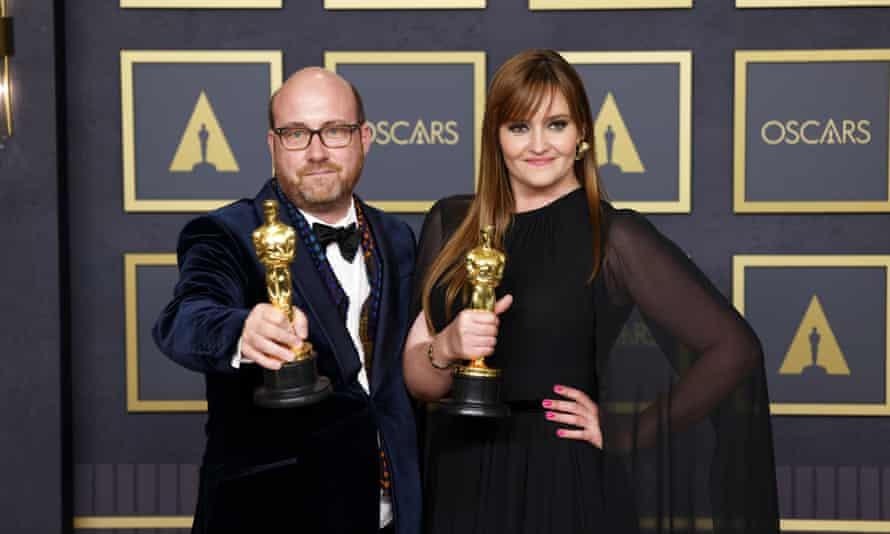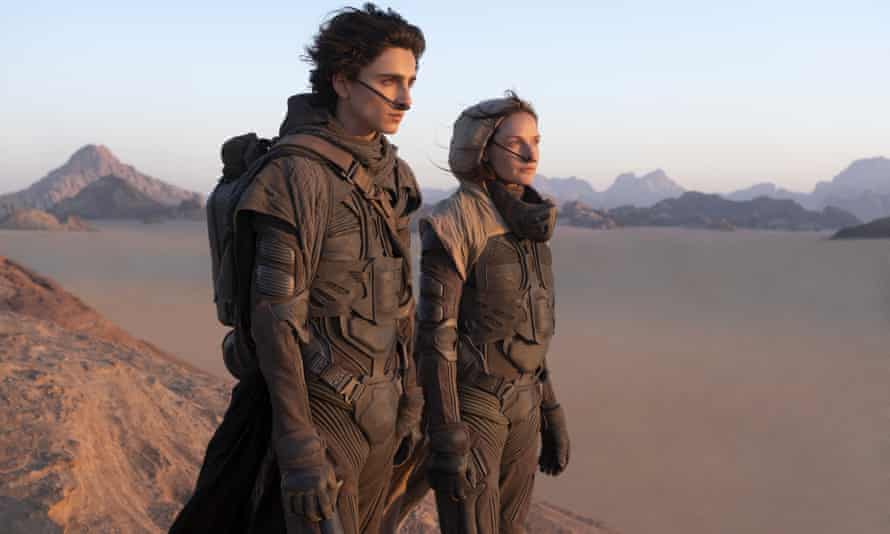The six Oscars picked up by Denis Villeneuve’s Dune on Sunday night in Los Angeles might not seem like a bad haul, especially given no other movie managed to garner more than three. And yet such technical categories as cinematography, editing, score, visual effects, production design and sound are not usually considered to be among the major prizes, even if the movie’s spectacular achievements in all these essential disciplines were critical to making it such a splendid feast for the senses on the big screen.
Dune was one of 2021’s biggest critical smashes, but in many ways its failure to pick up any awards for acting, direction or producing tally with a sense that the first episode in Villeneuve’s space saga relied more on spectacle and epic sweep than the traditional Oscar virtues of pathos and big-hearted warmth. It is a movie that glues your eyes to the screen, so rapid is the action, so electrifying are the fight scenes, yet it is not likely to ever make someone shed a tear, or recommend it to a disheartened friend who needs to rediscover their inner mojo. Driving Miss Daisy, or The Help it is not.
Might the Academy end up rewarding Villeneuve with major prizes once Dune: Part Two hits multiplexes in October 2023? Something similar happened nearly 20 years ago, when Peter Jackson had to wait for 2003’s Return of the King to doff its feathered cap during awards season. Prior to that film, Jackson’s previous two Lord of the Rings episodes had picked up only five gongs at two different ceremonies, and all in technical categories. At the 2004 Academy Awards, Return of the King almost swept the board with a staggering 11 Oscars – a joint record with Titanic and Ben-Hur that it still holds to this day. It also became the first fantasy film to win the best picture prize.
Dune (part one) is already well ahead of where Jackson was at this stage, so might the Academy hold back its major prizes for the second instalment? Much of that perhaps depends on whether Part Two hits the kind of emotional high notes that the New Zealand film-maker strummed throughout his extended foray into Middle Earth.
Villeneuve is more than capable of imbuing futuristic fantasies with gorgeously intense moments of wonder, as his dazzling but deeply human alien-encounter flick Arrival proved beyond doubt. And it is hardly a shock that Dune’s first episode never quite zoomed to the stirring levels of, say, Gandalf’s fall into darkness in the Mines of Moria during The Fellowship of the Ring. JRR Tolkien always intended his 1954-55 epic high-fantasy saga as a three-part journey, and therefore ensured each section featured its own powerful climax.

Frank Herbert’s Dune, on the other hand, is not split so easily in two. Moreover, it is essentially the story of a wronged scion who (spoiler alert for those who have not read the full Dune series) eventually discovers that with great power comes Putin-like levels of megalomania. There is a more complex emotional arc here than the one of warm-hearted homunculi battling to save the world from evil presented by Tolkien. It was never likely to be a project that connected with mainstream audiences in the same way Lord of the Rings did.
It seems unlikely then, that Villeneuve and his team only need hold on until Part Two to see Dune finally grab the key Oscar gongs it perhaps deserves. Unless that second episode can go beyond giant space worms, witchy cults and warring dynasties, and give us a little bit more human joy and red-blooded awe. The first part taught us that one’s eyes turn a cold and distant blue after chowing down on too much “spice”: it may be a lot to ask, given the icy nature of Herbert’s space saga, but if it is to triumph at the Oscars, Part Two will probably need to show Timothée Chalamet’s Paul Atreides glowing with something a little more heartfelt.

